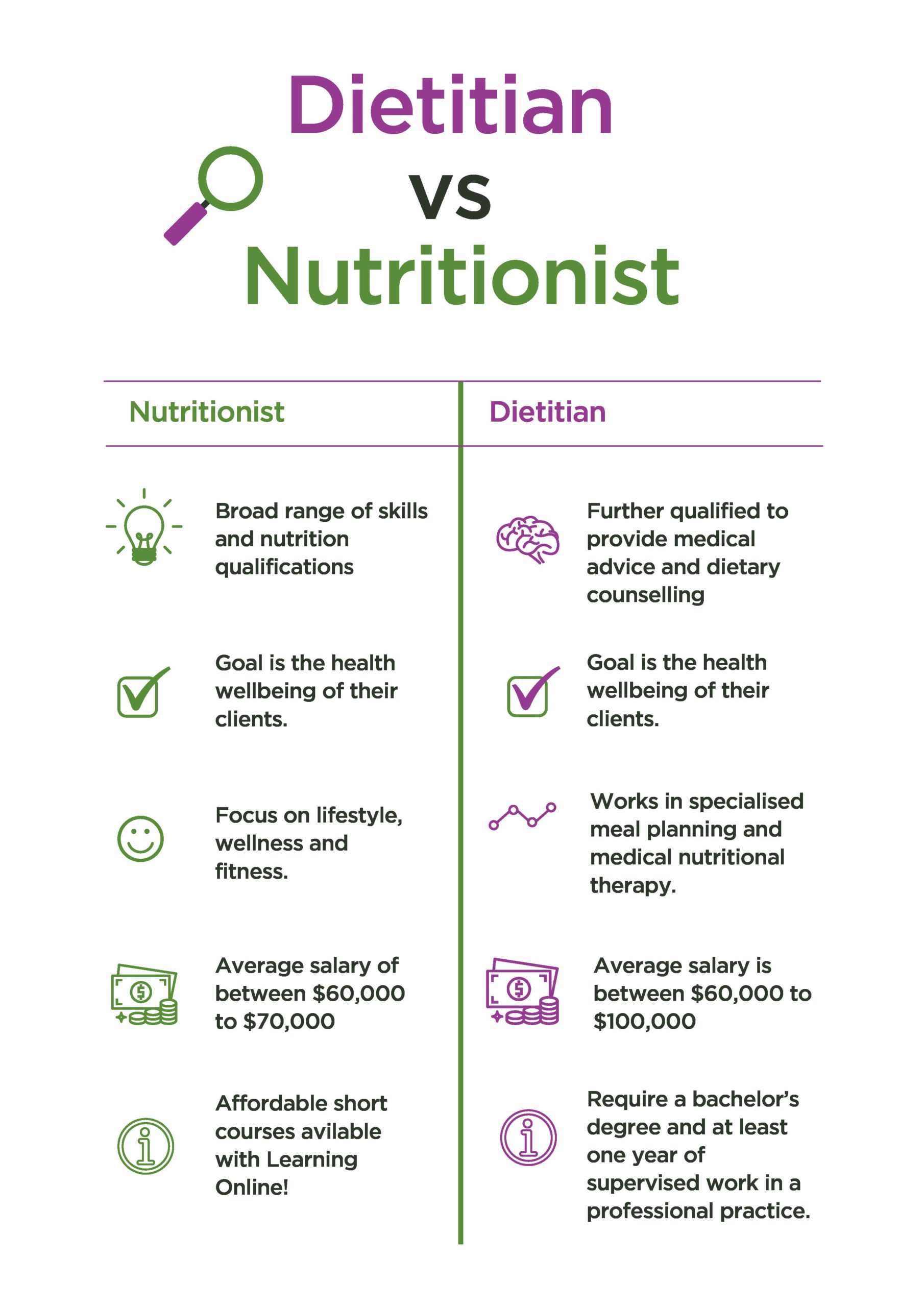All Categories
Featured
Table of Contents
The kinds of Nutritionists are: and. The former are those individuals who make use of the clinical approach to examine nutrients, both as specific substances and as they interact in food and nutrition while the last are specialists that aid in diagnosing the dietary troubles of areas and in locating services to those troubles.
: They deal with health cares and global health and wellness organizations.: They are in charge of large-scale food preparation and service.: They are experts in nutrition and aging. They are Board licensed in Gerontological Nourishment with the American Dietetic Association.: They are mainly involved with dietary associated study in the professional element of nourishment in condition states, public aspect on main, second and in some cases tertiary wellness avoidance and foodservice facet in issues involving the food planned for clients.
How Much Does It Cost To Hire A Professional Nutritionist?
: These work as source people for the media. Dietitians' knowledge in nourishment is commonly taped for television, radio, and newspapers-- either as an expert guest opinion, normal writer or visitor, or for source, dining establishment, or recipe growth and critique.: These job under private method. As described over, all dietitians are nutritional experts but not all nutritional experts have the qualifications and certifications to be called dietitians.
This suggests precisely the exact same point as Registered Dietitian (RD), a term that has actually been in use for a long period of time. All RDs are RDNs but some pick to call themselves that and some do not. Better complicating issues are license demands. While accreditation to end up being an RD or RDN is controlled by the Academy of Nutrition and Dietetics a nationwide organization licensure is managed by private states.

In order to give medical nourishment therapy and qualify as suppliers for insurance policy companies, a dietitian needs to be certified by the state. According to the Bureau of Labor Statistics, the demand for dietitians and nutritionists is expected to boost by 20% between 2010 and 2020 this is a much faster development rate than the standard for all occupations.
How Do I Find A Professional Dietitian Service?
There are substantial differences in payment based on expertise, with Medical Pediatric Dietitians and Milk Nutritionists averaging roughly $90,000. In 2014, The Bureau of Labor Stats (BLS) found that the top 10% of dietitians and nutritional experts make more than $79,000, and the lower 10% less than $36,000 - Find a Dietitian. A mean hourly wage of $27.62 was determined for both industries, with the leading 10% earning over $38.00 per hour, and the bottom 10% earning below $17.00 per hour
Nevertheless, there is a variety of tasks available in various environments for those who desire to work with the public, along with for those that choose even more research-focused employment. Lots of get involved in one of these areas in order to help people live healthier lives which can be profoundly gratifying.
With existing statistics that one-third of the united state populace is overweight, as well as a large number of elderly united state residents, dietitians and nutritional experts are likely to have a much more substantial function in the future. My Plan places dietitians and nutritional experts at # 53 in their happiness index of leading 300 professions with the highest possible task complete satisfaction rankings.
In addition to participating in an approved program, the majority of states require dietitians to be certified or to have professional certification, or both.
What Is The Best Plant-based Dietitian Company Near Me
Your core classes may include: Food scientific research Chemistry Health and wellness care policy Scientific nourishment Biostatistics Microbiology Food solution management You'll additionally require to complete a dietetic internship.

And to progress in the field, you'll likely need a master's level. So, whether written in regulation or not, dietitians and nutritional experts often times need a similar education. Typical bachelor's degrees for nutritionists consist of nourishment scientific research or a relevant self-control, such as dietetics, kinesiology, food system monitoring, or biochemistry and biology. Some of your training courses may consist of: Trends in nourishment Biomedical data Professional nourishment Food, nutrition, and actions Nutritional ecology Community nourishment Physiology Some degree programs include internships, yet in others you'll need to locate possibilities by yourself.
The number of hours you'll require may rely on needs in the state where you'll work. Whether you intend to earn a credential or not, it's an excellent concept to complete at the very least one teaching fellowship to get useful experience before seeking a permanent duty. Licensing and qualification needs for nutritionists and dietitians differ from state to state.
What Is The Average Cost Of Intuitive Eating Nutritionist Services?
An expert certification demonstrates your know-how and knowledge in your area. Below are the leading qualifications for dietitians and nutritional experts.
The titles are essentially the exact same. There's no professional difference between them, and you're cost-free to pick which one you intend to make use of based upon individual choice. To take the accreditation test, you should: Make an undergraduate level that's approved by the ACEND Full a dietetics internship After Jan. 1, 2024, you'll require to earn a master's degree to receive the accreditation.
How Much Should I Pay For Local Dietitian?
Bureau of Labor Stats puts dietitians and nutritionists in the very same classification and claims they gain a median annual income of $69,680. There is a variety in salaries, with the lower 10% around $44,910 and the top 10% around $98,830, according to the BLS. Nutritionist and dietitian functions are expected to grow 6.6% with 2032, according to the BLS.
This does not imply that profession is exceptional to the other, as they both have different features and certifications that may often overlap. If you intend to discover more about what makes these careers distinct, keep analysis. Diet professionals are specialists who assist boost the lifestyle with healthy food options.
What Is The Best Vegetarian Dietitian Company Near Me
Nutritional expert guidance about nutrition's effect on health. The field is much less regulated than diet professionals; therefore, nutritionists' levels of proficiency and certifications can vary.
There are a number of differences between diet professionals and nutritionists. Right here are the training and history requirements. Dieticians generally hold a bachelor's degree in dietetics, nourishment, or a related area. As their professions advance, lots of diet professionals seek postgraduate degrees, like a Master's or Doctorate, to be experts in certain areas of nourishment. Dieticians should embark on supervised sensible training as component of their education to get hands-on experience in professional settings, neighborhood nourishment programs, or food solution management.
Latest Posts
Heart Health Dietitian (Fremantle 6160)
What Is Full Service Fitness Nutritionist?
Gastric Band – Djugun